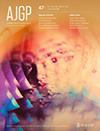Bipolar disorder.
Q3 Medicine
引用次数: 0
Abstract
BACKGROUND Bipolar disorder affects about 1% of Australians and impacts severely on relationships, careers and general functional capacity. General practitioners are central in the management of patients with bipolar disorder. OBJECTIVE To update clinicians on the recognition, diagnosis and management of bipolar disorder in light of recent research. DISCUSSION There is growing concern about the over-diagnosis of bipolar disorder, and increasing evidence that bipolar depression may present differently to unipolar depression. Antipsychotics are the initial agents of choice for the acute treatment of mania. For preventive treatment, lithium and atypical antipsychotics have the strongest evidence base. Lithium has been shown to be more effective than valproate. The main effect of lithium and most of the atypical antipsychotics is on prevention of manic relapse; only olanzapine and quetiapine also protect against depression. Lamotrigine is an agent with evidence for prevention of depressive relapse, but have minimal activity against mania. The role of antidepressants remains contentious, while there is strong support for quetiapine. Finally, there is growing evidence from randomised controlled trials of the benefit of psychological therapies in conjunction with medications.双相情感障碍。
背景双相情感障碍影响约1%的澳大利亚人,严重影响人际关系、职业和一般功能能力。全科医生是双相情感障碍患者管理的核心。目的根据最近的研究,更新临床医生对双相情感障碍的认识、诊断和管理。讨论人们越来越担心双相情感障碍的过度诊断,越来越多的证据表明双相抑郁症可能与单极抑郁症表现不同。抗精神病药物是躁狂症急性治疗的首选药物。对于预防性治疗,锂和非典型抗精神病药物具有最强的证据基础。锂已被证明比丙戊酸钠更有效。锂和大多数非典型抗精神病药物的主要作用是预防躁狂复发;只有奥氮平和喹硫平可以预防抑郁症。拉莫三嗪是一种有证据表明可以预防抑郁复发的药物,但对躁狂的作用很小。抗抑郁药的作用仍然存在争议,而奎硫平有强有力的支持。最后,越来越多的证据来自随机对照试验,表明心理治疗与药物治疗相结合的益处。
本文章由计算机程序翻译,如有差异,请以英文原文为准。
求助全文
约1分钟内获得全文
求助全文
来源期刊

Australian family physician
医学-医学:内科
CiteScore
0.61
自引率
0.00%
发文量
1
审稿时长
4-8 weeks
期刊介绍:
The Australian Journal of General Practice (AJGP) aims to provide relevant, evidence-based, clearly articulated information to Australian GPs to assist them in providing the highest quality patient care, applicable to the varied geographic and social contexts in which GPs work and to all GP roles as clinician, researcher, educator, practice team member and opinion leader. All articles are subject to a peer-review process before they are accepted for publication. The journal is indexed in MEDLINE, Index Medicus and Science Citation Index Expanded.
 求助内容:
求助内容: 应助结果提醒方式:
应助结果提醒方式:


